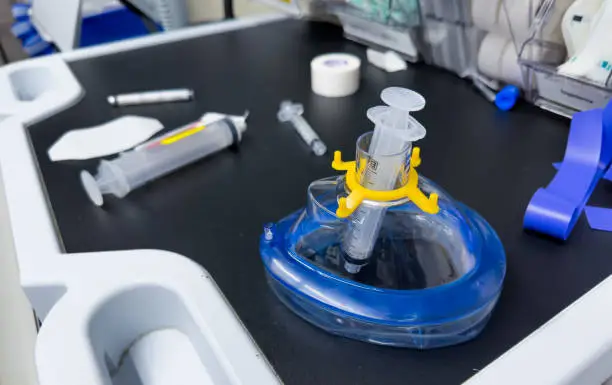In recent years, fentanyl has emerged as one of the most dangerous drugs, fueling the addiction crisis. It’s powerful, fast-acting, and—most alarmingly—deadly in tiny amounts. For individuals struggling with fentanyl addiction, the path to recovery isn’t just difficult—it’s uniquely risky.
Unlike other opioids, fentanyl is 50 to 100 times more potent than morphine, making withdrawal and detox more complex and dangerous. But fentanyl isn’t the only substance that requires careful, medically supervised detox. Other addictions—like benzodiazepines, alcohol, and polysubstance use—can also trigger life-threatening withdrawal symptoms if not properly managed.
If you or someone you care about is dealing with fentanyl or other dangerous addictions, finding the right treatment center could be life-saving. Detoxing from strong substances like fentanyl is not just tough; it can be hazardous. Many people go for recovery programs offered by different rehab centers like Crestview Recovery, a leading addiction treatment center that provides a fentanyl detox program and care for high-risk substance use. They offer thorough programs with 24/7 medical supervision and personalized treatment plans to help individuals start their recovery safely.
Why Fentanyl Detox Is Especially Dangerous
Fentanyl’s extreme strength makes it one of the hardest drugs to detox from. It attaches firmly to the brain’s opioid receptors, creating strong physical dependence quickly. When someone stops using fentanyl, they can enter severe withdrawal within just a few hours.
Risks of Fentanyl Detox Include:
- Severe Physical Symptoms:
Withdrawal from fentanyl can lead to intense muscle and bone pain, vomiting, diarrhea, sweating, chills, and insomnia. These symptoms are usually stronger than those from other opioids.
- Rapid Withdrawal Onset:
Fentanyl has a short half-life, meaning withdrawal symptoms begin sooner and become worse faster than with longer-lasting opioids like methadone.
- High Relapse Risk:
The physical and emotional pain of fentanyl withdrawal often leads to relapse. Sadly, many people overdose after relapsing because their tolerance decreases quickly, making previously manageable doses suddenly lethal.
- Polysubstance Use Complications:
Fentanyl is often mixed with other drugs, sometimes without the user’s knowledge. Detox becomes riskier with multiple substances, each bringing its own challenges.
Other Addictions That Require Specialized Detox
While fentanyl detox is particularly dangerous, other addictions also need professional medical supervision. Several substances can lead to life-threatening withdrawal symptoms.
- Alcohol Addiction
Why It’s Risky:
Alcohol withdrawal can actually be fatal. Heavy drinkers may face delirium tremens (DTs), which involve seizures, hallucinations, confusion, rapid heart rate, and even cardiac arrest. Medical detox is necessary to manage these risks safely.
- Benzodiazepine Addiction
Why It’s Risky:
Benzodiazepines like Xanax, Valium, and Klonopin create severe physical dependence. Quitting suddenly can cause seizures, extreme anxiety, psychosis, and, in some cases, death. A slow, medically supervised taper is typically needed.
- Stimulant Addiction (Cocaine, Methamphetamine)
Why It’s Risky:
Stimulant withdrawal usually does not lead to physical death, but it causes intense psychological stress. People may have suicidal thoughts, paranoia, and deep depression, which makes medical detox important for emotional safety and stability.
- Polysubstance Addiction
Why It’s Risky:
With multiple substances involved—like fentanyl, alcohol, and benzodiazepines—the detox process becomes unpredictable. Each drug has different withdrawal effects, making medically supervised care essential for safe stabilization.
Why Medical Detox Is Critical
Detox is not just about stopping drug use; it is about doing it safely with professional help and medical support. Without medical detox, individuals expose themselves to severe complications, which can include:
– Heart failure
– Seizures
– Dehydration
– Mental health crises
– Overdose after relapse
Why Medically Supervised Detox Is Essential
Detoxing from fentanyl and other high-risk substances is not just about stopping use—it’s about staying alive while doing it. Without medical supervision, withdrawal can be dangerous or even deadly.
A medical detox program is designed to:
- Ensure Safety During Withdrawal:
Clients receive 24/7 monitoring of vital signs, hydration levels, and mental health to prevent complications. - Use Medication-Assisted Treatment (MAT):
FDA-approved medications like buprenorphine, methadone, or clonidine can reduce withdrawal symptoms, control cravings, and make detox safer and more manageable. - Provide Emotional and Psychological Support:
Detox is tough—not just physically, but emotionally. Our team includes counselors and support staff who help clients cope with the mental and emotional strain of early recovery. - Create Individualized Detox Plans:
Each client’s detox experience is different. We design custom care plans based on the substances used, medical history, and mental health needs.
What Happens After Detox?
Detox is only the first step in the recovery journey. While it clears substances from the body, it doesn’t address the root causes of addiction, such as trauma, mental health issues, or lifestyle patterns.
That’s why support for clients from detox through every stage of recovery, offering a full continuum of care, includes :
- Residential treatment programs
- Partial hospitalization and intensive outpatient programs
- Behavioral therapies like CBT, DBT, and trauma-informed care
- Life skills training and relapse prevention education
- Holistic therapies such as mindfulness, yoga, and fitness therapy
The Bottom Line: High-Risk Detox Requires Specialized Care
Whether it’s fentanyl, alcohol, benzodiazepines, or multiple substances, detox is not something to attempt alone. Trying to quit without medical supervision can lead to relapse, overdose, or life-threatening complications.
Multiple rehabilitation resources provide the expertise, compassion, and medical support necessary to navigate detox safely and progress toward lasting recovery.

